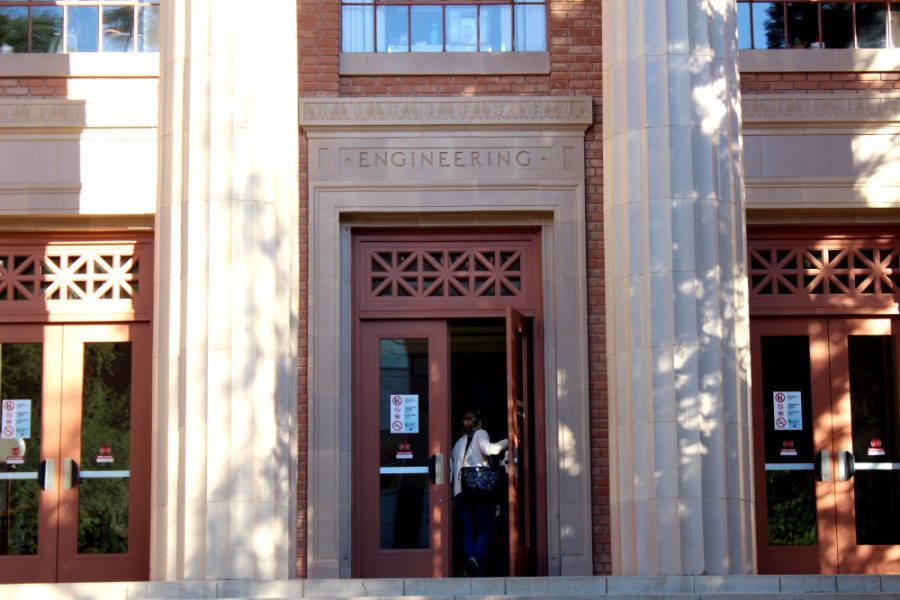The scent of kettle corn and fry bread fills the air, while neon lights in the distance flash to the pulse of a live band’s bass guitar. Spring Fling is just around the corner, but for those of us who would prefer to stay in and watch a movie rather than face large crowds of noisy people, the idea of joining in the festivities doesn’t sound too exciting.
However, scientifically speaking, choosing to bond with other people rather than your couch might be better for your health. Here are some incentives to get out of the house and into the center of the action this year:
“We are very hardwired to connect with other people and to think about the intentions of other people, to support others and especially to monitor our status within the group,” said David Sbarra, director of clinical training and professor of psychology.

According to Sbarra, we have evolution to thank for this internal drive to be part of the larger group. Our early ancestors probably wouldn’t have lasted very long if they tried to make it on their own.
Throughout evolutionary history, the ability to form strong, healthy relationships and social connections with other people enabled our species to survive, Sbarra said.
Today, these relationships are just as important, though for different reasons.
“Relationships play a powerful role in helping people reframe difficult experiences and understand stressful events in a different kind of way,” Sbarra said. “They’re a powerful agent of support from that perspective, as well.”
RELATED: A Spring Fling guide to eating: fast or funnel cake?
Another benefit we get from interacting with groups of other people is something Sbarra refers to as social resources.
For example, let’s say you are trying to accomplish a task that is difficult on your own, such as lifting a large object. Your relationships within a group of people can prove beneficial because those members of the group will be more likely to give you a hand, Sbarra said.
Developing a strong bond with a group of people can provide us with the support we need to deal with some of life’s physical and emotional demands, Sbarra said.
“In addition, more is better in many social situations,” said Sosuke Okada, a graduate student studying sociology. “Nobody would like to attend an empty party.”
Just imagine showing up at the UA Mall this weekend, with all the carnival rides and food trucks set up, but you were the only one there. Sounds a bit creepy, doesn’t it?
Many events wouldn’t be successful without a large group of people to accompany them, Okada said.
Much like attending a concert without any friends, remaining on the “social periphery” can lead to feelings of loneliness, Sbarra said.
According to Sbarra, when we experience a “perception of social isolation,” or loneliness, it’s most likely because our relationships with other people could use a little improvement. Learning to connect with others and form strong relationships is one way to combat this.
These connections form what is commonly referred to among social scientists as “social capital,” Okada said.
“On the individual level, social capital can be seen as the sum of social networks you possess and your ability to obtain benefit from your social networks,” Okada said.
She added this is associated with many benefits, such as improved trust or successful democracy.
RELATED: Psychologists learn strategies of teen learning and exploration
Developing strong connections is especially important for the student-age population.
“During this period of time, the college years, this is really about refining how we operate in relationships and sort of setting down habits that are going to last us, in most part, for the rest of our lives,” Sbarra said.
He went on to say that these years are the time for us to turn our relationship behaviors into relationship habits, which can have a huge impact on our health.
Associating with groups can also help us to form our identity, Okada said.
“For example, you identify yourself as a Wildcat after attending the game night,” Okada said. “[This] can give you positive emotions, a sense of belonging [and] a feeling of solidarity.”
However, this isn’t necessarily the same all around the world.
Sbarra points out that factors such as cultural variation and personality type greatly influence the type of relationships present in a society. However, no matter what culture or country you’re from, “relationships still matter,” he said.
“Someone who’s an introvert, for example, may be taxed by a day of interacting with people, but that doesn’t mean that you don’t need food to survive, and in this case, relationships are sustenance at some level,” Sbarra said.
In other words, don’t miss out on the opportunity to form some quality relationships and strengthen important social bonds this weekend at UA’s Spring Fling. Your mental health will thank you for it.
Follow Hannah Dahl on Twitter.









